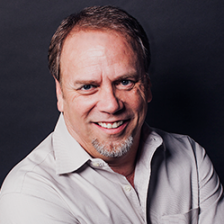
Background & Philosophy
A substance use and mental health disorder treatment industry professional since 2002, Curt Maddon has worked in numerous areas of rehabilitation services including all levels of direct client care as a line director, an executive director and over eight years as an officer of two long-term dual diagnosis treatment facilities. In personal recovery from addiction and mental health disorders since October of 2000, Curt and his family are on the same journey he helps clients and families embark upon, and his message of hope coupled with his passion for recovery has helped many begin the process in an effective and lasting way.
Like many of his colleagues, Curt subscribes to the belief that if everyone in the family system learns how to support the recovery of their loved one by practicing the principles of recovery themselves, successful outcomes are far greater. Without this understanding, shift and action, outcomes are diminished.
Also of paramount importance to the process is the continuum of care provided for all involved – spanning intervention into recovery, and the critical progress milestones of early recovery in between.
More Time is Often Better
Studies have shown that more comprehensive, well-designed plans of action that involve the tincture of time and appropriate connected levels of care and accountability produce better outcomes. If one reviews the basic physician’s model of addiction treatment, that is, care for doctors with addiction problems, it is revealed that the basic model is often up to five years from the day of the intervention to the day that the patient is fully clear of all obligations of the recovery continuum of care plan he or she agreed to in order to keep their medical license. The outcomes for these types of programs are astounding – recovery rates in the upper 80th to lower 90th percentile. This is, of course, a point of leverage that pertains to a small percentage of the overall the population of people seeking recovery, however, proper assembly of emotional leverage, particularly in shutting down the disease of enabling, has a powerfully positive effect on the process.
Therefore, Curt predominantly refers to programs who have a solid continuum of care philosophy. This usually means inpatient treatment, followed by a comprehensive aftercare plan involving outpatient treatment and/or clinical services, supportive living, accountability and monitoring, surrounded by a Recovery-Oriented System of Care (ROSC).
It Takes a Village
Curt has noticed over the years that a person who enters into what is ultimately successful recovery is surrounded by numerous key people. Of course, there are family members – those who know them best and love them the most. Generally speaking however, the family tends to know far less about recovery than other key people. This is, of course, normal and the new approach seeks to engage the family in not just an educational process, but a personal and experiential one as well. The other side of the coin is the other key people involved. This could be the interventionist, the counselor in treatment, sponsor in a 12-step group, etc. Let’s say there are 10 key non-family people involved. All are a necessary cog in the machine of the person’s early recovery. All play an important role. But Curt’s observation is that out of those 10, the recovering person will only truly “connect” with about two or three. And one can not always predict who those connected key people will be.
Therefore, Curt’s services focus on these key people along with the other support mechanisms we install for the arduous early recovery process. It is not out of the ordinary for Curt to actually NOT be one of the key connected people, but you better believe that he does all he can to maintain strong relationships with the key connected people during the process. People in early recovery are quite impressionable. This approach yields better results.
Family-Centered
The holistic approach to family recovery coupled with a long term continuum of care model and attention to village dynamics for the person seeking recovery is the primary framework of Curt’s approach to recovery. Whether providing consulting, intervention or marketing services, this model is fully applied to his work. For more information, rates, and availability, please contact Curt at (213) 500-0696 or click on the secure and confidential contact link below.
Contact Curt for a Cost Free Consultation
Privacy Assured:
